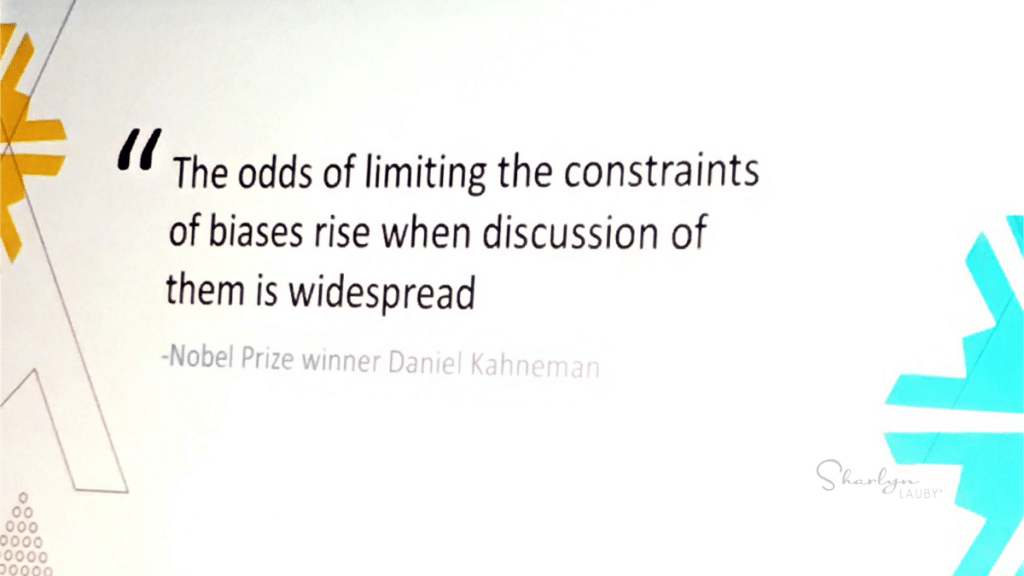Employees Want to Work at Diverse and Inclusive Organizations
Estimated reading time: 4 minutes
While I know there’s a tremendous focus on recruitment right now, organizations can’t ignore the employee experience. Because that’s what attracts and retains employees.
And when we think about the employee experience, one of the most common themes I’m seeing is diversity, inclusion, equity, and belonging (DEIB). Employees want to work for organizations that bring together different people because it helps individuals learn and grow. They want to be a part of organizations where everyone is welcomed and valued. Employees want to know that equity exists in their organization.
Lots of organizations talk about DEIB, but we need more organizations to show it. If you’re looking for a few ways to start taking action, here are a handful of articles that might help.
Job Seekers Want to Work at Organizations that Align with Their Social Views
While social views might not have been the number one reason that an employee has left or is considering leaving the organization, it could be one of the things that attracts someone to a new employer. In a survey from Gartner, 75% of employees expect employers to take a stance on current societal or cultural issues, even if they have nothing to do with them directly.
The First Step to Building a More Inclusive Workforce is Having More Inclusive Job Postings
A job description may seem like a small part of your hiring process, but it influences nearly everything else that follows. The job description cements the essential requirements for a role and determines the sourcing strategy. It is one of the first signals that the organization sends to candidates about whether they will feel welcome and included in working for you. The more inclusive, inviting, and accessible your job description, the stronger the foundation for a diverse workforce.
Organizations Can Create Workplace Belonging
Employees want to work for companies that make them feel welcome. They want to work at places where they feel they belong. And when it doesn’t happen, everyone suffers. But when belonging happens, employees can bring their best selves to work, and everyone is better for it. In this episode of The HR Bartender Show, we talk about the role employee resource groups (ERGs) can play in creating belonging. We also discuss how important it is for individuals to have a clear understanding of their personal values, including knowing when to stand up for them.
How to Help Employees Learn About Pronoun Sharing
Pronoun sharing is more than just a trend. Pronouns are attached to our identity, like our names or nicknames. For example, like it or not, we now have an image in our heads when people talk about “Karen”. And in my opinion, it’s not fair. We want others to use our name correctly and not give us a nickname that we don’t feel represents us. Pronouns are part of who we are, and it helps us and others when we share the pronoun that we would like for others to use when interacting with us.
Recruiting and Retention: Low Empathy Workplaces Are Not Attractive
Organizations that truly want to make a positive impact on DEIB need to do more than just talk. And they need to do more than a generic training program. Providing employees with an opportunity to build empathy is good for them and good for the company. It starts with leadership. Why? Because adopting an attitude of empathy will trickle down throughout the staff if there is ownership for empathy and empathetic behavior at the top.
Is It Time to Move from Family Friendly to Life Friendly
Over the past few years, organizations have realized the value of employee experience. They also have realized that employees will have a better experience at work if they are allowed to bring their whole selves with them. No more of this “leave your personal life at the front door” stuff. I think it’s the reason that organizations are offering more in terms of parental leave programs, wellbeing programs, etc. What I loved about the term “life friendly” is that it applies to everyone: parents, non-parents, and those individuals who might not have “blood relatives” but they have people in their lives who are their number one priority.
Candidates and employees are smart. They will notice those organizations that “talk” about DEIB and those that genuinely “act”. Employees know that work is an important part of their lives, and they spend a lot of time with their employer. The last thing they want to do is spend it with companies that don’t get DEIB and aren’t willing to work toward being more diverse and inclusive.
Image captured by Sharlyn Lauby at an employee experience goal summit in San Francisco, CA
17